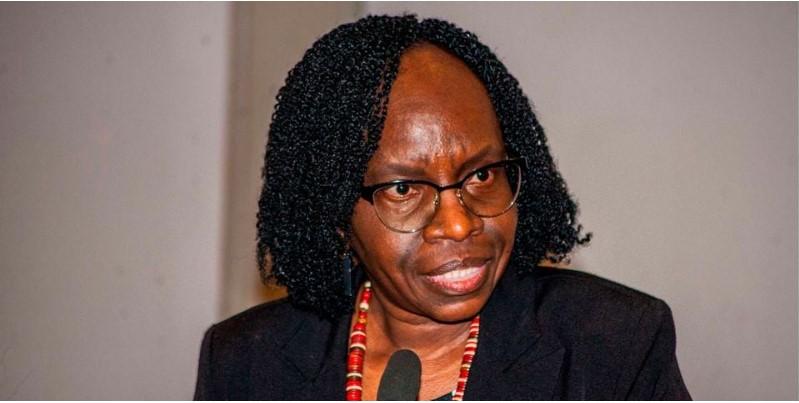State lost Sh67bn in irregular pension payments, audit shows
A recent audit conducted by the Auditor-General unveiled that the National Treasury’s pensions department incurred irregular payments, resulting in the government losing a minimum of Sh67 billion.
The funds allocated to individuals who don’t qualify are substantial enough to finance the creation of an adequate number of boreholes to tackle water scarcity in drought-affected regions. Additionally, these funds could be utilized to hire an adequate number of teachers for Junior Secondary Schools, build classrooms, and furnish science laboratories, as per information provided by the Parliamentary Budget Office.
The irregular payments within the public service pensions scheme are attributed to shortcomings in the Pension Management Information System (PMIS), according to the performance audit report.
The audit notes that an analysis of records indicates that the system “falls short of characteristics of a good system since it has allowed” irregular enrolment of pensioners, payment of lump sum before officers’ date of exit, shared and irregular identification number and the tax PINS.
The audit attributes the system anomalies to a lack of separation of duties for the PMIS administration and a lack of system triggers “which could detect and flag such irregular entries”.
“The effect of the anomalies in the PMIS is irregular payments that have compromised the operations and have resulted in many beneficiaries waiting for too long to get paid,” the audit report reads.
The Pensions Department utilizes PMIS to handle and distribute pension benefits to eligible individuals after the required authorizations complying with the regulations have been granted.
Foolproof support
However, PMIS has not been offering foolproof support in the processing and payment of pensions and gratuities “since the system has allowed irregular entries and duplications in the information entered and processed”.
The audit report shows that the allocation of funds for pension payments has reached 99 percent according to the Treasury’s data.
Between the fiscal years 2012/13 and 2016/17, the government allocated Sh199 billion for the disbursement of pensions and gratuities to pensioners and their dependents. Throughout this duration, the spending escalated annually by an average of 25 percent.
The performance audit also identified additional anomalies, such as instances of shared bank account numbers and the inclusion of non-permanent officers in the PMIS for pension payments.
Questionable payments
The audit findings reveal that out of the suspicious payments, a total of Sh44.07 billion was unlawfully disbursed to 221,590 recipients who lacked proper or any tax PIN. Additionally, Sh21 billion was distributed to 29,387 recipients who had joint bank accounts, while Sh1.62 billion was issued as a lump sum to 962 individuals before their departure dates from public service.
Additionally, irregular payments totaling Sh555.94 million were disbursed to 419 individuals who were not properly enrolled in the PMIS. Another sum of Sh492.17 million went to 213 people who were not under pensionable terms of service. Furthermore, Sh152.85 million was paid to 232 individuals who shared identification details, and Sh27 million was given to 117 out of 273 pensioners whose enrolment dates raised doubts.
The registration periods specified in the audit extended beyond 2018, spanning from 2022 to 2099.
About 156 of the 273 are yet to be paid and “though the pensions department indicated that these entries could have been in error”.
ALSO READ:
- Raila Ally Breaks Silence After Ruto-Uhuru Meeting
- Gachagua Close Ally Karungo Wa Thang’wa Accepts Ruto’s CBS Award
- Gov’t to Release Ksh.32 Billion to Counties Next Week – DP Kindiki
- High Court Strikes Down Ruto-Raila 2023 IEBC Amendment Bill
- Kenya Water Towers Agency Dissolved: Government Moves to Streamline State Corporations
The audit heightened concerns that the government might have been experiencing financial losses due to funds being transferred to bank accounts belonging to deceased pensioners and their dependents. This concern stems from the audit’s revelation that the pensions department lacks procedures to verify the existence of beneficiaries.
The report does not indicate the amount paid to 7,166 claimants with irregular IDs, even as it notes that the “most important characteristics of any management information system are those that give decision-makers confidence that their actions will have the desired consequences”.
“Specifically, the system should ensure relevance, accuracy, usefulness, timeliness and completeness. It should therefore eliminate data duplication, reduce errors, enhance data security, reliability, robustness and increase user confidence,” the audit report states.
Information sourced from the PBO reveals that the pensions department’s irregular payment of Sh67 billion could cover the cost of building 6,700 boreholes, including all necessary fittings.
The amount is also enough to build at least 16,000 fully equipped and integrated laboratories for students in secondary schools.
State lost Sh67bn in irregular pension payments, audit shows
